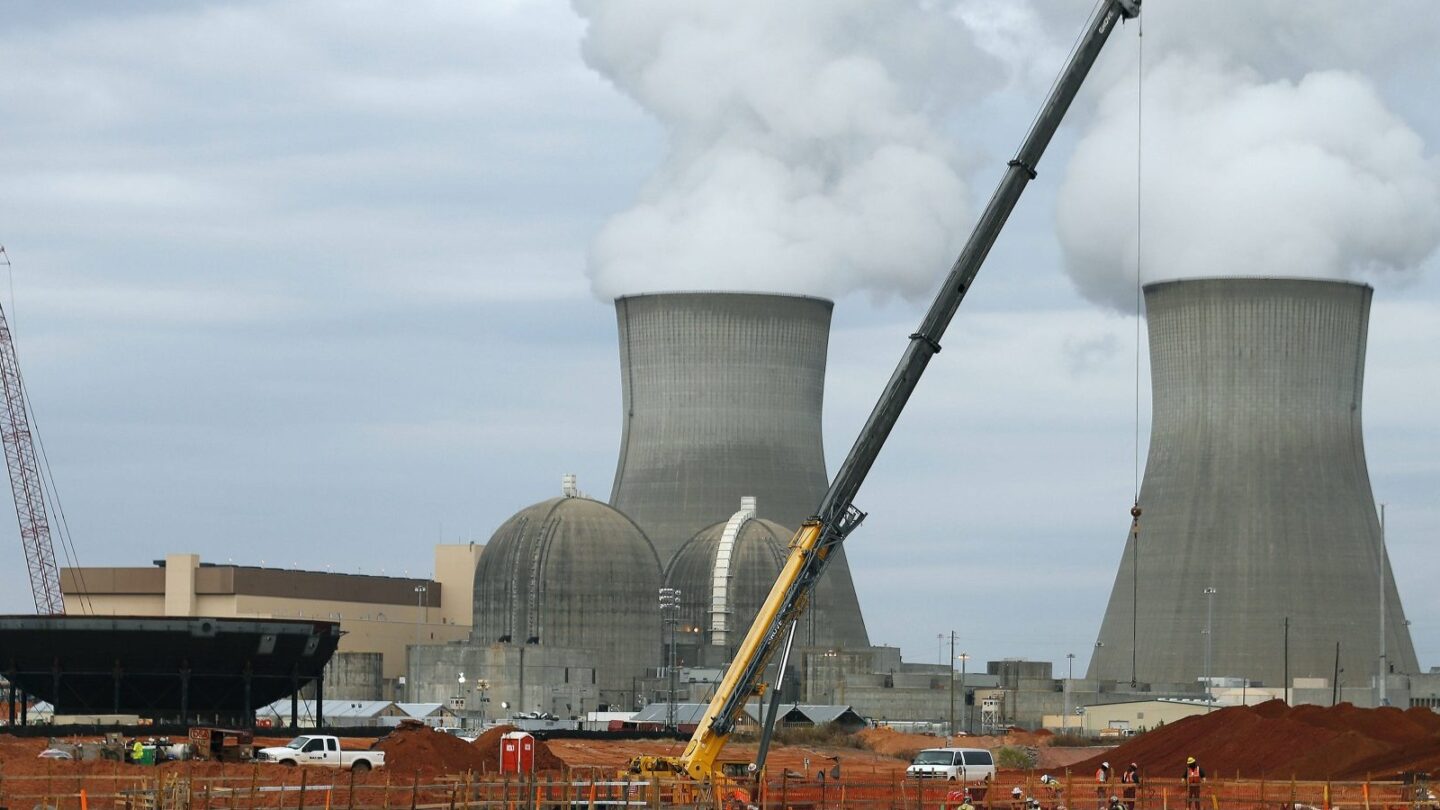State Senators Want To Stop Nuclear Finance Fee in Georgia

A new bill would would directly affect the expansion at Plant Vogtle near Augusta,
A group of powerful state senators wants to limit the money Georgia Power can collect from ratepayers for the construction of nuclear power plants in Georgia.
The proposal (SB355), sponsored by a group of Republican and Democratic senators, says utilities could not collect financing fees for a project beyond its initial completion date.
This would directly affect the expansion at Plant Vogtle near Augusta, which is running five years behind schedule, and has doubled in cost to more than $22 billion. That is more than double the cost when expansion began.
Republican Senator Chuck Hufstetler said the cap on costs has to be drawn somewhere.
“What’s the line?” he said. “Is it $30 billion? Is it $50 billion? It’s just not a competitive energy source right now and we’re going to be stuck with those costs for decades.”
Numbers from the Public Service Commission show Georgia Power originally stood to gain a $7.4 billion from expanding the nuclear plant. With the delays, PSC number show the utility has a chance to increase its profit to $12.6 billion.
“I don’t think they should benefit from additional profit that the ratepayers have to pay just because of cost overruns,” Hufstetler said.
Opponents of the nuclear expansion applauded the bill saying it is unfair that ratepayers continue to finance the project with no definite end in sight.
“Georgia power is being rewarded for failure and it’s time to stop the bleeding. This bill would do that,” said Neill Herring, a lobbyist for several environmental groups.
The bill also calls for the reimbursement of the finance fees, should the project be abandoned. It would also exempt charter and public schools from paying the monthly fee until Plant Vogtle was up and running.
In a statement, Georgia Power said it is reviewing the bill.
“The Vogtle expansion is key to ensuring that our state has affordable and reliable energy today that will support economic growth now and for generations to come, and will deliver a new energy source that will put downward pressure on rates for 60 to 80 years once the new units are on line,” Georgia Power said in the statement.
In 2009, the State Legislature passed a bill that allowed Georgia Power to collect the nuclear tariff. Customers have paid the tariff since 2011.
Right now, Georgia is the only state in the nation with active nuclear power construction.
A similar project in South Carolina was abandoned last year because of rising costs








